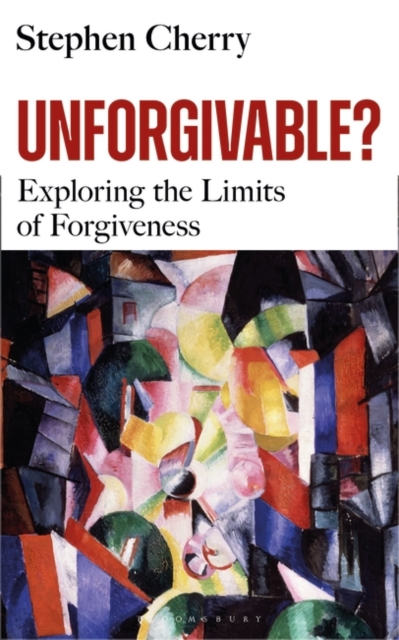Unforgivable?: Exploring the Limits of Forgiveness

Unforgivable?: Exploring the Limits of Forgiveness
Forgiveness is a lovely idea, wrote C. S. Lewis, and in recent decades it has been seen and admired in situations ranging from therapy to politics, and proposed as a constructive pathway in the aftermath of abuse and atrocity. Not everyone is impressed, however, and in parallel with praise and promotion of forgiveness, cries of 'unforgivable' are uttered with increased shrillness and frequency.
In this hugely compelling, wide-ranging, and thought-provoking book, Stephen Cherry argues that while forgiveness can be transformative in the aftermath of harm, it can also, if not handled with care, become an additional pressure and anxiety for those who have been harmed. He teases out the way in which Christian understandings often lie behind pressure to forgive, identifying a number of typical mistakes with the Christian approach to forgiveness. Reflecting on many examples from real life as well as literature, and on the insights of psychologists and philosophers, Cherry uses the tension between the desire to forgive and the protest that a person is unforgivable to push towards understandings of forgiveness that avoid the harshness of binary models. Forgiveness is not, he insists, the only good way forward after harm. A positive understanding of non-vengeful unforgiveness is vital if the harmed are to be given the care and support they need and deserve, and if forgiveness itself is to be authentic and liberating. Cherry's challenging book brims with energy and blends human insight with intellectual vision. It argues that if forgiveness is to play a part in the aftermath of harm without inflicting further harm it must be presented in a non-idealized way and only following acknowledgement of the depth of the human impact of the harm done.PRP: 122.33 Lei
Acesta este Prețul Recomandat de Producător. Prețul de vânzare al produsului este afișat mai jos.
110.10Lei
110.10Lei
122.33 LeiLivrare in 2-4 saptamani
Descrierea produsului
Forgiveness is a lovely idea, wrote C. S. Lewis, and in recent decades it has been seen and admired in situations ranging from therapy to politics, and proposed as a constructive pathway in the aftermath of abuse and atrocity. Not everyone is impressed, however, and in parallel with praise and promotion of forgiveness, cries of 'unforgivable' are uttered with increased shrillness and frequency.
In this hugely compelling, wide-ranging, and thought-provoking book, Stephen Cherry argues that while forgiveness can be transformative in the aftermath of harm, it can also, if not handled with care, become an additional pressure and anxiety for those who have been harmed. He teases out the way in which Christian understandings often lie behind pressure to forgive, identifying a number of typical mistakes with the Christian approach to forgiveness. Reflecting on many examples from real life as well as literature, and on the insights of psychologists and philosophers, Cherry uses the tension between the desire to forgive and the protest that a person is unforgivable to push towards understandings of forgiveness that avoid the harshness of binary models. Forgiveness is not, he insists, the only good way forward after harm. A positive understanding of non-vengeful unforgiveness is vital if the harmed are to be given the care and support they need and deserve, and if forgiveness itself is to be authentic and liberating. Cherry's challenging book brims with energy and blends human insight with intellectual vision. It argues that if forgiveness is to play a part in the aftermath of harm without inflicting further harm it must be presented in a non-idealized way and only following acknowledgement of the depth of the human impact of the harm done.Detaliile produsului










